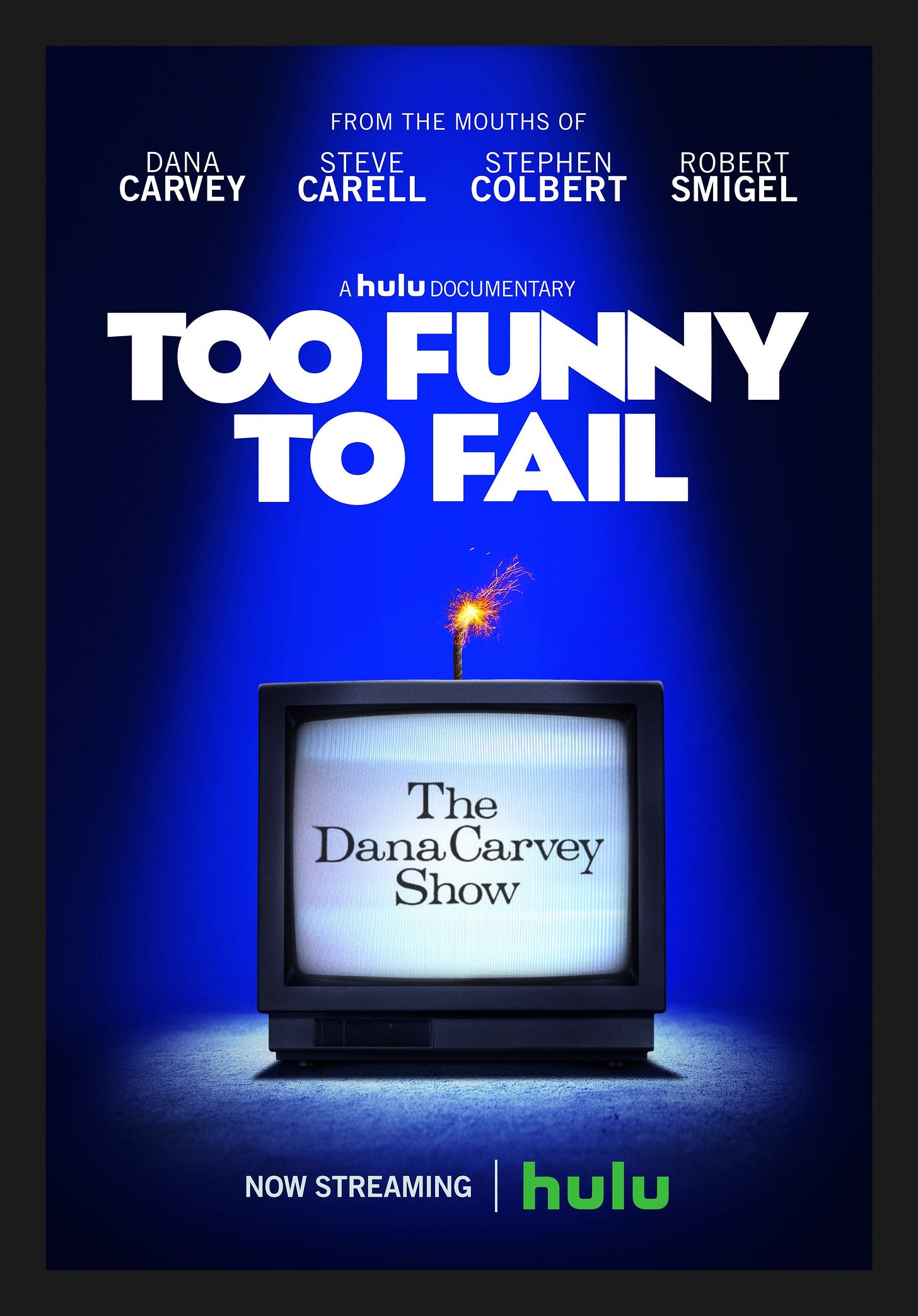Iterate Weekly - Issue 110
This week we're looking at Humane's AI projector, IBM's CEO thinks remote workers can't get promotions, Belgians get paid to ride bikes to work, Amazon helps us hear dialogue, and Too Funny to Fail!
Welcome to issue 110 of Iterate Weekly!
Hope you’re all doing well. This is just a friendly reminder that you can always reply directly to these messages or leave a comment on the Substack post. Feedback is highly encouraged and I’m happy to answer any and all questions that come up.
Let’s jump into this week’s stories.
🤖 Tech
Humane’s pocketable AI Projector…thing
I’m always excited when technology takes on new form factors. I can’t be the only one who is sick of a mobile phone only looking like a rectangular piece of glass and metal. Or a computer just being a keyboard with a screen attached that can fold up like a clamshell. Bring on the exciting new devices! Even if they’re not perfect, I always admire innovation.
An example of a new piece of tech that I’m really excited about is a screen less device from a new company called Humane.
A special glimpse of the product in action can be found during a TED talk from Humane Co-Founder (and former Apple employee) Imran Chaudhri. You can see a screen shot above and the longer clip below.
So what exactly are we looking at here? This demo still leaves us with plenty of questions. But in a nutshell, this device kinda looks like an old-school pager that can just sit in your pocket waiting to answer voice commands. It can read you information aloud or it can project rudimentary text and graphics onto a surface like your hand or a table. There also seems to be a real time translation feature and a camera that can do some image identification a la Google Lens.
Neat right?
Yes it kinda looks like a pager if you’re old enough to remember those. It’s also a cross between a tiny Google Assistant or Alexa powered speaker attached to a Pico projector. I love that it’s a standalone project that doesn’t need to be tethered to a phone or computer to work. That essentially makes it platform agnostic but could pose problems to battery life if it needs its own “always-on” internet connection while it uploads data to the cloud.
There is no point in speculating too much right now, this is really just a sneak peak at a product that could usher in a new form factor for personal devices. With far too many of us glued to screens, I find it refreshing to have a something in my pocket that can just speak to me as needed and use anything as a screen if the need arises. There is no imminent timetable for a product release but you can join a vague waiting list on their website here.
Anyone else really eager to see more from Humane?
🎓 Education/Productivity/Work
IBM’s CEO thinks remote workers’ careers will suffer
Leave it to the CEO of IBM to rain on the parade for those of us who really love remote work.
IBM hasn’t been considered the most progressive tech company when it comes to modern work arrangements. While still hugely relevant in some sectors, they never seemed to embrace the true startup vibe of many of their modern contemporaries. I went to school near the IBM headquarters in New York and witnessed some of this first hand with professors who had spent time at the company. It often seemed more like working for the government than another tech company.
Anyway, I digress. The real story here is that CEO Arvind Krishna thinks that the careers of remote employees are likely to suffer compared to their in-person counterparts.
It’s a pointed jab at those IBM employees who’ve embraced remote work. Krishna has pushed for employees to return to the office at least three days per week. In a recent interview, he stopped short of demanding that all employees forego their remote arrangements. But he did make it clear that it could be more difficult for remote workers to garner. He says:
"In the short term you probably can be equally productive, but your career does suffer. Moving from there to another role is probably less likely because nobody's observing them in another context," he said. "It will be tougher. Not impossible, but probably a lot tougher."
Hmm, I guess it really does depend on the role. But issuing a blanket statement like that probably doesn’t help anyone and could be highly discouraging for remote workers who feel like they’re thriving in their role. It’s not a surprising take from a company like IBM who has long relied on in-person collaboration and extensive campuses to power its workforce.
Things could certainly backfire if statements like this cause IBM employees to look elsewhere for more remote-friendly work environments.
I can certainly see both sides of the debate, it isn’t an easy answer but I’m definitely on the “pro-remote work” side of the argument.
Anyone else agree with Krishna’s stance?
♻️ Health & Environment
Paying Belgians to ride bikes to work
This is one of those stories that really highlights the many differences between The United States and many European countries.
The government of Belgium is moving forward with their plan to offer a “biking allowance” to anyone who ditches their automobile and starts cycling to work.
Belgium may not be as cycle-friendly of a country as say The Netherlands or Denmark, but legislation like this will put them well on their way to catching up. Many employers in Belgium are already incentivized to contribute to employees transportation costs, but this new allowance takes things to another level.
The bicycle allowance is EUR 0.27 per kilometer ridden and is exempt from taxes and social security contributions. This amount will change annually roughly in line with inflation. The compensated distance is limited to 20 kilometers each way. The allowance is paid every month in arrears together with the employees’ wages.
Yep, employees can get tax exemptions for 0.37 Euros per Kilometer up to 20Km each way. That’s a lot of metric/Euro conversion for this American, but it sounds like a pretty sweat deal to me. And yes, e-bikes are allowed in addition to traditional “acoustic” bikes.
I really wish that something like this could be implemented in the United States, but it seems highly unlikely. I will say that I once used my company commuter benefits to get access to a shared Bay Wheels (formerly Ford GoBike) subscription. That’s about as close to free biking as we’re likely to see in the states for a while but it was a really nice perk that only enhanced by love of biking as a primary form of transportation.
Anyone else using any corporate biking incentives these days?
🛍 Grab Bag
A smarter way to hear dialogue
Maybe you can relate to this issue, or maybe it’s just me getting old.
Have you ever watched a movie or TV show where you had trouble hearing the dialogue? The sound effects and music may all be super audible, but you just can’t make out what the characters are saying. I don’t think I’m alone in my struggles.
It turns out that Amazon is issuing a solution to help boost the sound of dialogue in their Prime Video original content to help folks like me.
They call the feature “Dialogue Boost” and it will easily allow you to amp up the sound of the character’s voices separately from special effects or background music. And no, this isn’t as simple as just turning down one tuner on the mixer and raising another. Amazon claims to be using some real high-tech AI here.
Their system detects potential moments in the content when the dialogue may be a little difficult to discern. Nope, there isn’t an actual person just listening in and turning up the sound, AI has stolen another job!
Right now this feature is only available on select Prime Originals (Jack Ryan and The Marvelous Mrs. Maisel amongst others). And it’s easy to just choose the level of dialogue boost in the audio settings as seen in the image above. I’m definitely going to give it a shot the next time I fire up an Amazon Original.
💬 Quote of the Week
"Without tradition, art is a flock of sheep without a shepherd. Without innovation, it is a corpse."
-Winston Churchill
🎥Content Recommendation
Too Funny to Fail
I’ve written about Hulu’s documentaries before. I really do think that they are the best streaming option if you are a fan of niche documentary films (and who isn’t really?).
This week I’m recommending another great title from Hulu. It’s called “Too Funny to Fail” and it chronicles the short-lived rise and fall of “The Dana Carvey Show”.
I have to admit that I don’t recall ever watching “The Dana Carvey Show” in its original airing in 1996. Like most of America, I do remember being a fan of Carvey’s SNL sketches even at a young age. At the time of the show launch, he was arguably the most popular comedian in the world (Jim Carey could argue, and fellow SNL alum Adam Sandler was on the rise as well).
Needless to say, people were eagerly anticipating Carvey’s new show. And by most measures, it was a complete an utter failure. The names involved with the show have become comedy royalty. Aside from Carvey, it featured Steve Carell, Stephen Colbert, Louis C.K., and the extremely underrated Robert Smigel as part of the ensemble.
This documentary shares first-hand accounts from the stars on how such a high-profile show came and went after 8 (only 7 originally aired) episodes. If you’re a fan of 90s comedy or just someone who likes well-put-together documentaries, this one is for you.
Thanks for reading, I’ll see you next week!
Hey! Could you use some help establishing healthy habits? Do you have a big project or new business that you want to get off the ground but could use some advice? Maybe you could benefit from hiring me as your coach. If you’re interested, read more about my coaching services here, or go ahead and book some time on my calendar to discuss further.
Iterate is free today. But if you enjoyed this post, you should let me know that this writing is valuable by pledging a future subscription. You won't be charged unless I enable payments at some point in the future. Think of it like an IOU in a tip jar.






"Too Funny To Fail" is way too hilarious to be as underrated as it is. It's about Dana Carvey after all! What an amazing documentary, love that you recommended it 😄